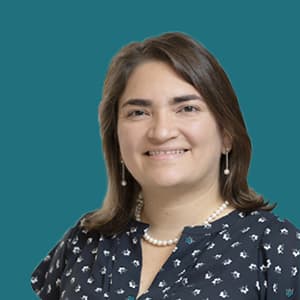CAR TEAM Cells Show Promise in Multiple Preclinical Models of Pancreatic Cancer
The cells showed activity toward PDAC cells as well as cancer-associated fibroblasts, which may address challenges with the tumor microenvironment.
Marcela Maus, MD, PhD

In multiple preclinical models, chimeric antigen receptor (CAR) T-cell–engaging molecule (TEAM) cells modified tumor stroma and exhibited increased pancreatic ductal adenocarcinoma (PDAC) antitumor activity.1
Data on the CAR-TEAM cells in models of pancreatic cancer were published in an online paper for the American Association for Cancer Research (AACR) Annual Meeting 2024, held on April 5-10, 2024, in San Diego, California.1
“In pancreatic cancer, about 100% of the adenocarcinoma cells will express MSLN but there is a significant stroma made by cancer-associated fibroblasts (CAFs) that turns out to be quite dense and can be inhibitory toward the T-cells entering,” senior author Marcela V. Maus, MD, PhD, Associate Professor of Medicine, Harvard Medical School, and director, cellular immunotherapy, Cancer Center, Massachusetts General Hospital, said during a talk about CAR TEAMS at the AACR meeting.2
Maus, along with first author Mark Wehrli, Attending Physician, Department of Oncology, University Hospital of Bern (Inselspital), and colleagues investigated anti-mesothelin (anti-MSLN) CAR TEAM cells that targetCAFs through fibroblast activation protein (FAP) and engageT cells through CD3 (MesoFAP CAR-TEAM cells) in in vitro, in vivo, and ex vivo patient derived models of PDAC and CAF cells. Notably, ex vivo models included patient-derived organoids with patient-matched CAF and patient-derived organotypic tumor spheroids.
WATCH NOW: Marcela Maus, MD, PhD, on New Research on CAR T for Solid Tumors, Glioblastoma
“One strength of our work lies in the multidimensional analysis of MesoFAP CAR-TEAM cells across different preclinical models of pancreatic cancer combining PDAC and CAF in vitro, in vivo, and in patient-derived ex vivo models such as PDO with patient-matched CAF and PDOTS containing autologous tumor and immune/stromal cells,” Wehrli and colleagues wrote.1
The team found that when released from mesothelin-targeting CAR T cells, the TEAM showed specific and significant binding to CD3 and FAP antigens, leading to T-cell activation and cytotoxicity of the target cell, with MesoFAP CAR-TEAM cells lysing MSLN PDAC cells and CAF.
Specifically, the researchers performed live cell, time-lapse microscopy and saw reduced edge dynamics (the percentage of change in CAR-TEAM cell area over time relative to its initial area) of MesoFAP CAR-TEAM cells when interacting with PDAC and CAF compared with PDAC alone or no target. They also performed acoustic force microscopy and saw increased binding avidity of these cells in the presence of PDAC and CAF when compared with mesoCD19 or untransduced T-cells.
In looking at antitumor activity, the researchers found that MesoFAP CAR-TEAM cells are efficacious against PDAC andCAF in an in vivo model, against a pancreatic tumor mouse model of liver metastasis, and in an ex vivo patient-derived PDAC model of tumor spheroids (PDOTS). The cells outperformed control CAR T-cells in co-culture assays combining PDAC and CAF engineered to target either antigen alone in ex vivo models and in mouse models of PDAC with primary or metastatic liver tumors.
“We thought that this CAR TEAM approach would be best utilized to target that stroma and those cancer associated fibroblasts in pancreatic cancer while building on the MSLN antigen homogeneity expression in pancreatic cancer,” Maus said.2 “We think that this is an approach to target both adenocarcinoma and its cancer-associated fibroblast stroma that could have impact in patients with pancreatic cancer.”
REFERENCES
1. Wehrli M, Guinn S, Birocchi F, et al. Mesothelin CAR T Cells Secreting Anti-FAP/Anti-CD3 Molecules Efficiently Target Pancreatic Adenocarcinoma and its Stroma. Presented at: AACR Annual Meeting 2024; April 5-10, 2024; San Diego, California.
2. Maus M. TEAMS of CAR-T cells in cancer. Presented at: AACR Annual Meeting 2024; April 5-10, 2024; San Diego, California.
The CAR-T Versus Bispecific Antibody Debate in Third Line LBCL
April 26th 2024Emilie Aschenbrenner, PharmD, BCOP, a hematology coordinator for pharmacy at Froedtert and the Medical College of Wisconsin, discussed the advantages of each of the 2 modalities in the third and second line settings.